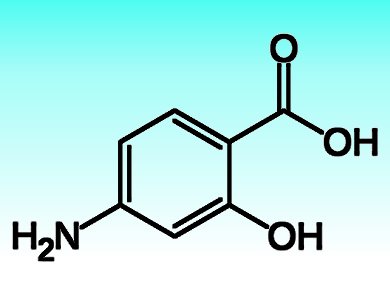Para-aminosalicylic acid (PAS) is an antibiotic commonly used to treat tuberculosis. It interferes with the metabolism of folate, a nutrient employed by mycobateria to multiply. As PAS is a structural analog of the folate precursor p-aminobenzoate, it is believed to compete with the latter for the binding to dihydropteroate synthase (DHS), a key enzyme in folate biosynthesis.
This long lasting belief has been contradicted by Sumit Chakraborty, Weil Cornell Medical College, New York, USA, and colleagues. The researchers revealed that the antibiotic is not a competitive inhibitor of dihydropteroate synthase, but rather its alternative substrate. As a consequence, it is converted by DHS into metabolites that block mycobateria’s growth by interfering with other biochemical steps occurring during folate synthesis.
Although the enzymes targeted by PAS’s derivatives remain elusive, the study prompts their identification which might facilitate the development of new antitubercular drugs.
- Para-Aminosalicylic Acid Acts as an Alternative Substrate of Folate Metabolism in Mycobacterium tuberculosis,
S. Chakraborty, T. Gruber, C. E. Barry III, H. I. Boshoff, K. Y. Rhee,
Science 2012.
DOI: 10.1126/science.1228980




